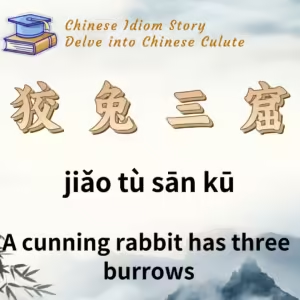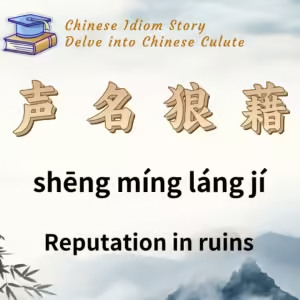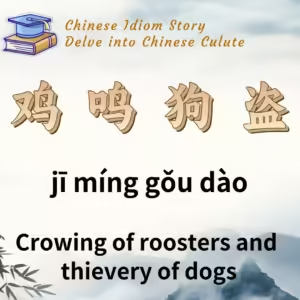
Chinese Idiom: 讳莫如深 (Hui Mo Ru Shen)
English Translation: The more hidden, the better
pīn yīn: huì mò rú shēn
Idiom Meaning: This idiom describes a situation where the truth is concealed very carefully, as if fearing that others might discover it. Here, 讳 (huì) means to conceal or avoid mentioning, while 深 (shēn) means deep or profound.
Historical Source: 《谷梁传·庄公三十二年》 (The Gu Liang Commentary, Year 32 of Duke Zhuang).
Idiom Story:
During the Spring and Autumn Period, Duke Zhuang of Lu favored his concubine Meng Ren and hoped that her son, Zi Ban, would inherit the throne. However, this was a complicated issue since Duke Zhuang had several other wives who had also borne sons, as well as three brothers: Qing Fu (the eldest), Shu Ya (the second), and Ji You (the youngest), all of whom had potential claims to the throne.
In 662 BC, when Duke Zhuang fell seriously ill, he cautiously asked his second brother, Shu Ya, who he thought could succeed him. Shu Ya replied, “Qing Fu is talented,” implying that Qing Fu would be a suitable successor. This suggestion did not please Duke Zhuang, so he turned to his younger brother, Ji You. Ji You firmly stated, “I would die in support of Zi Ban,” expressing his loyalty to Zi Ban. Duke Zhuang agreed with Ji You and dismissed Shu Ya’s opinion.
Subsequently, Ji You instructed the minister Zhen to poison Shu Ya, leading to Shu Ya’s death. In August of that year, Duke Zhuang died, and Ji You supported Zi Ban’s ascension to the throne.
However, Qing Fu, who also desired the throne, was dissatisfied. He conspired with Duke Zhuang’s wife, Ai Jiang, to assassinate Zi Ban. Ji You fled to Chen State for safety. Later, Ai Jiang’s sister, Shu Jiang, and Duke Zhuang’s son, Kai, were made king, known in history as Duke Min of Lu. At this time, Duke Min was still under eight years old.
After a little over a year, Qing Fu believed it was the right time to seize power and arranged for Duke Min’s murder. The people of Lu were outraged by Qing Fu’s repeated killings of two kings and rose up against him. Ji You, who had escaped to Chen State, also rallied the citizens to fight against Qing Fu. Fearing for his safety, Qing Fu fled to Qi State (or Ju State, according to Zuo Zhuan).
Confucius recorded this history in 《春秋》 (The Spring and Autumn Annals): “Zi Ban died, and Prince Qing Fu went to Qi.” Historically, people have noted that Confucius’ writing in The Spring and Autumn Annals is concise and carefully worded, often implying praise or blame within his choice of words. In this record, the term “卒” (died) clearly indicates death, and “如齐” (went to Qi) refers to Qing Fu fleeing there.
Therefore, The Gu Liang Commentary explains: “This is ‘running away’, and why is it expressed as ‘going’? It’s because the author concealed Qing Fu’s grave crime of killing the king, fearing that others might know the truth.” This encapsulates the essence of the idiom 讳莫如深, highlighting the lengths taken to hide the truth.






